|
In all honesty, I think there are a lot of preppers who do one of two things: they either stockpile a bunch of stuff they think will save them from having to live uncomfortably, or they go the way of permaculture and off grid living and think that will save them. I think both are wrong, at least as first steps or priorities. Survival will, unfortunately, likely be much more about your ability to do morally questionable things, band together, cooperate with strangers, and be proficient in individual and group combat tactics. You can stockpile all you want, or garden all you want at your cool cabin in the woods, or your farmland on the prairie, but if you can't protect it through superior intelligence, numbers, and firepower, then you will be an easy target and your efforts will be in vain. I say at the very least you need to get and own firearms and get trained in their use. They can and will be a useful tool once significant breakdowns occur. Whatever our political opinions in this day and age, we'll have to take a different look at them in a country that is collapsing around us and far more dangerous. Getting comfortable with firearms now is essential to your future survival. Get your family familiar with them so they don't do any harm with them and can defend themselves. Have a plan to scavenge them if and when you are in a WROL (without rule of law) situation. Network now with neighbors, the local police, veterans, etc, so you know who to trust when things get bad and who you can trust with the protection of your house, your block, your family. Build points of contact for a neighborhood patrol group. The point here is broader than just survivalism and hunting. Defense will be number one priority until at least after the third or so wave of die-offs. The quicker things come apart, the quicker defense takes priority. One of the things I think most people don't realize is that you have to have a way to defend yourself when the police aren't coming to help you. But just owning a firearm isn't going to save you. There's a lot more involved. One of the topics brought up consistently in regards to firearms is limitations on ammo. Eventually we'll all be down to sticks and stones and clubs and bows and arrows. Personally I don't think you or I will have to worry much about this in our lifetimes. (This article is primarily aimed at a U.S. audience. Your mileage may vary.) In my mind the only limitations on ammo will be your limitations on scavenging opportunities. There are so many guns in the hands of private citizens where I live, plus just think of all the guns and ammo at all the retail locations like Walmart, Bass Pro Shop, Gander Mountain, and all the actual gun shops all around. Think too of all the places where munitions and weapons can be taken from, like military bases, police stations, actual manufacturing plants and warehouses. And then on top of that you have to realize that you're not going to be going through 10,000 rounds of ammo a year or anything close. You're probably going to shoot a few hundred at most. A lot of training can be done dry-firing or using blanks or rubbers or even paintballs or pellet guns if you have to once we're post-collapse. Training the fundamentals of group tactics can be done with brooms or sticks if you absolutely have to, or by rotating a few firearms through a group of people who train on that platform and then pass it on. But yes, depending upon scavenging opportunities is certainly not something you should be planning on or using as your go-to option. Getting a post-collapse group together now and training and preparing is the best option as it improves the probability/likelihood of having a multi-pronged approach. If you don't have firearms and know how to use them, your odds go down of even being alive long enough to trade something of value for them or find a stockpile of weapons somewhere that haven't already been scavenged/stolen. To me, the way my brain works, I always come down to scenario probability. If you don't already have spare parts and extra ammo and cleaning kits for your weapons as well as the skills to repair them then you're not as prepared as someone who does. If you go into collapse having multiple weapon platforms and know how to use them and have had training and are a part of a cohesive group that has all also done so to the best of their abilities then you are way ahead of the person who hopes to scavenge some at the local big box store or trade for some when they realize they really need them. It's a continuum of best practices, which I've talked about before. You want to be consistently working towards your ideal preparation level. So, back to my point. If you pre-plan you can have much easier access to these things. You might even have a setup where you have mutually-cooperating survival groups where one of those groups because of the jobs of its members already has access to such things - like a military base or a munitions depot or even a big-box store employee or a gunsmith or a pawn shop owner. That way they can either take off with the stuff or help you or your group gain access later. Training: We've all been conditioned by TV and movies to believe that one shot from any gun will kill an attacker instantly, or at least knock them out of the fight immediately. Most people also believe that as long as they have a weapon, they'll be fine. The truth is altogether different. Beyond getting familiar with firearms, we need to be getting familiar with the kind of training we need to use them effectively as the tools they are. Tools are only effective in the hands of someone who is proficient in their use. As the old adage goes, 'train like you fight.' Imagine yourself in a gunfight situation. You'll almost certainly be scared and your adrenaline will be pumping furiously. If that's true, then your training should reflect that. Your training should be in a staged environment that is safe, but is realistic - meaning that it should be frightening and have your blood pumping way beyond normal. Going to the range and shooting at pieces of paper doesn't count as training in this respect - that is simply the 'learning fundamentals' stage. This topic easily transitions into a quick word about physical fitness as well as combatives training. When most people talk about exercise or getting in shape, they talk about aerobic exercise, or "cardio," and weigh-training. Typically, women seem more to favor cardio and guys favor weights. In a gunfight, a lot of people don't realize that what you're using mostly is anaerobic. All are important, but I want to make special note here. Training anaerobically means that your muscles aren't getting oxygen. Anaerobic exercise is defined as short duration, high intensity exercise lasting anywhere from a few seconds up to around two minutes. Sounds exactly like a gunfight, eh? The second thing that should be mentioned briefly is combatives training. Combatives is hand-to-hand fighting. It's what happens when you're struggling with an opponent physically. Clearly this kind of training is also important, and also has heavy anaerobic requirements. And here again we can apply the same standard for training. If you think about being in a serious physical confrontation with an attacker, you probably imagine yourself being scared and having high adrenaline. You will almost certainly be roughed up, even if you "win" the fight or get away. You might be punched or elbowed in the face or the side or the chest. You will likely get banged up a bit. So then, if your training isn't preparing you for these things, it isn't realistic. Get into a training program that coaches you through the fundamentals, but doesn't just stop there. In the end, if you aren't training these things you are putting yourself at a distinct disadvantage and all the cool guns and gear and stockpiles in the world aren't going to help you. Dealing with and overcoming this pain in training is what starts building the intestinal fortitude and determination to carry on the fight and win. Firearms: People absolutely love to debate about firearms. Praising their choices and denigrating anyone who disagrees. Which are best, which you should buy, what accessories you should get, what kind of ammunition to buy. The list is endless. Let's make this simple. Types of firearms can be put into a few distinct categories. Mostly, these categories have to do with two things: type and range. The general categories are: pistols, shotguns, and rifles. Within each are countless options. This article is about defense, so everything I say will reflect that. A person who is professional in their approach to this topic will recognize that it is the user, rather than the tool, that is paramount. If the only thing available is a pistol, or a .22 rifle, or a 20-guage shotgun, then that is what will have to be used effectively to get the job done - even if you had preferences otherwise. You should be familiar enough with different weapon platforms that you can operate these common firearms effectively and safely. To conclude, I'd like to tell a short personal story. My history with firearms is brief. I did not grow up around guns. Up until just over a year ago, I'd never owned a gun before. I never felt the need. My first firearms purchase was a pistol - after much research, I bought a Smith & Weston M&P 9mm Shield. I wanted something for personal self-defense that could be concealed. Buying this, a leather gun belt, extra magazines, 300 rounds of ammunition, a cleaning kit, and 3 holsters (I now have 6), set me back a cool $1,000. I had only shot guns twice before in my life on static gun ranges. So, I was somewhat familiar, but I was still extremely nervous having a gun in the house. I kept it in a hard case, open and unloaded, on a counter for about a week until I got used to seeing it and becoming comfortable with having a gun so close to me all the time. Being a new gun owner was a surprisingly nerve-racking experience for me. Then, I loaded a magazine with bullets and inserted it into the gun - and left it in the gun case on the counter for a few more days. No bullet in the chamber, with the safety on. Absolutely no way for the gun to "go off" but I was still nervous being around such a dangerous object. I figured I needed to get some training before I would be really comfortable with it being loaded in the house, never-mind carrying it in a holster on my hip. So, I went to a local training class on basic pistol familiarity. Then I went and got my concealed carry permit and took another class. Then I went to a pistol-combatives class. After those, I felt much more comfortable with my new firearm. I wore it concealed on a quick trip to the gas station. Then a few days later to the local grocery store. After everything went smoothly, as expected, I became even more comfortable. Now, I have no issues or nervousness. My next purchase was an AR-15. Again after much research, and finding a great deal on one used, I bought a Sig Sauer 516 patrol rifle. Buying this, with a 4x magnification scope, 6 extra magazines, 250 rounds of ammo, a carrying case bag, ear protection and a cleaning kit, set me back a cool $2,000. I had never shot an AR-15 before in my life. So, like the pistol, I let it sit in a corner unloaded for about a week until I became used to seeing it. Then, I decided I'd better get some training. I went to three separate rifleman training classes - all of which were free (donations accepted), minus the costs for ammunition. I went wearing blue jeans and a t-shirt, tennis shoes and a ball-cap. Everyone else there was kitted out like they were part of a militia or a SWAT team. Combat boots, camouflage clothes, etc. I was definitely the odd man out. But in any case, they seemed like nice people and the instructors were teaching the classes for no fee because they just wanted as many people as possible to be proficient with firearms in our inevitable future. There are such people out there. There is really no excuse for not having proficient training. Conclusion: I'm not a gun guy. I'm really not. And my audience for this blog is also largely comprised of people who are not. Many people who read my blog are left-leaning politically. Many are older, in poor health, have families, and just want to garden in the sunshine. But the sun is setting on the horizon we envisioned for our future and a new dawn is rising - one that is more dangerous in a society that will collapse around us. I don't own a bunch of guns - I can't afford it. I can barely afford to own what I do. I don't envision myself as some revolutionary or some guerrilla warrior against a tyrannical government, but I know that firearms will likely be necessary and I want to be able to defend myself and those I love. Our standard should always be to improve - to set goals in proficiency, to meet them, and then to go further. Our lives, and the lives of those we love, depend upon it. "Man is a tribal carnivore, not a gentle gardener." -- James Lovelock
3 Comments
Dexters army
7/2/2017 04:56:21 pm
Where did you find free training? We have good training available here but it's out of reach financially.
Reply
Dennis Mitchell
7/3/2017 09:40:10 pm
I've managed to go through 100 rounds trying to sight in a scope. To get rifle training I'd end up spending $600.00. That would entail buying a few hundred rounds just for training.
Reply
11/21/2022 07:21:52 pm
I like how you pointed out that receiving the right training to wield a firearm makes it easier to defend yourself when necessary. My cousin is interested in trying out hunting as a new pastime outside of work. I should relay this information to him so he can find a gun store where he can choose which firearm to use while receiving appropriate training!
Reply
Leave a Reply. |
The future is going to be far different than the past. The next decade is going to look vastly different than the last decade. This blog is about the transition.
If you like what you see, contribute to making this blog a success here:
Recent Posts: Physical Preps and Tools Prepping Priorities - Physical & Psychological 2022 US Threat Assessment Part II 2022 US Threat Assessment Part I GONE Bag: Get Out Now Emergency Tactical Gear Considerations Interview with Derrick Jensen 2020: A Marker For Collapse Firearms And Our Future Thermodynamic Failure: Phase 2 Firearms and Defense Syria 1971 Explaining Peak Oil Graduate-Level Preparedness The Significance of Renewables Preparing What Will The Future Look Like? What Do The Experts Say? Hope is Complex and Fragile Historical Perspective Personal Change Does Not Equal Social Change Why Genesis 1:28 Doesn't Apply It's Not About Running Out of Oil Introduction |
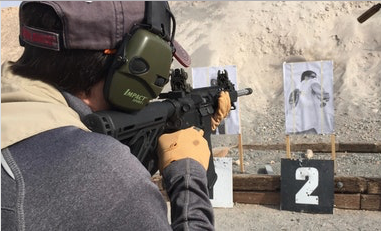
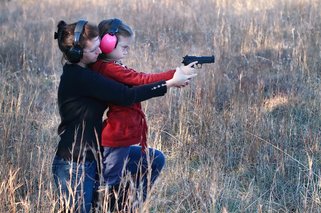
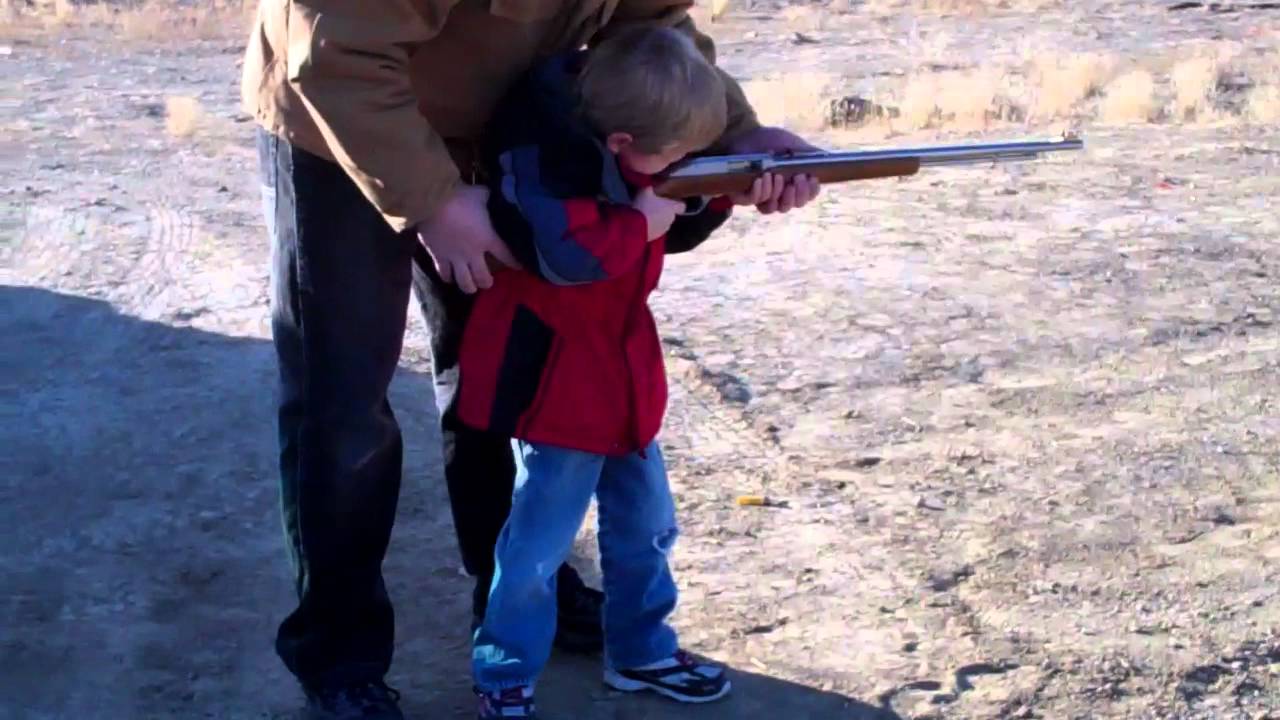
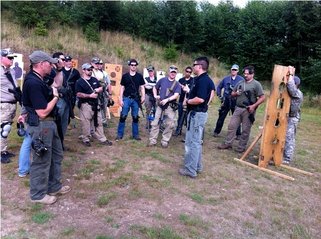
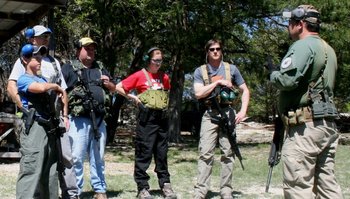
 RSS Feed
RSS Feed
